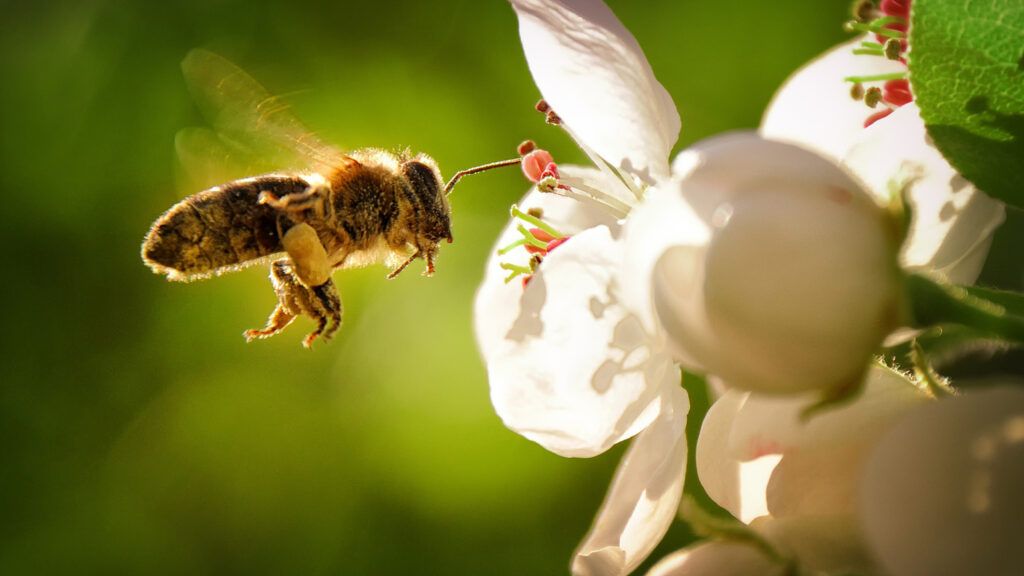Honeybees are an integral part of our natural world. They pollinate the majority of our crops and trees, giving us the food we eat and the air we breathe. But bees also hold a spiritual significance for humanity. They are present in religious life, from the Bible to monasteries. What is it about these tiny insects that connects them to the divine?
Bees in the Bible
Bees are mentioned multiple times in the Bible. Bees in a swarm are often viewed as a prophetic occurrence. In the story of Samson, bees appear in the carcass of a lion he kills, symbolizing a victorious triumph over evil. In the Book of Judges, Deborah was a prophetess who spoke the words of God. Deborah’s Jewish name, Devorah, translates to “bee.”
Honey in the Bible
Honey is referenced in the Bible over 60 times and is usually synonymous with purity and abundance. Exodus 3:17 describes the Promised Land for the Israelites as “a land flowing with milk and honey.” Proverbs 24:13 states “Eat honey, my son, for it is good; honey from the comb is sweet to your taste.” And in the Gospel of Luke, when Jesus appears to his disciples after the Resurrection, they give him a piece of fish and a honeycomb to eat.
Monastic Bees
Beehives are an important part of most monasteries. The bees pollinate the monastery’s gardens and crops and the monks sell the honey to visitors. The structure of a monastery is sometimes compared to the structure of a beehive – a community that works together with each member having its specific purpose. Thomas de Cantimpre, a Flemish monk, wrote that “both the unity and the virgin purity of the bees should serve as an example to the monks. Stillness should fall upon the convent in the evening, as it does upon the hive.”
Patron Saint of Beekeeping
St. Ambrose is the patron saint of beekeepers. According to legend, his father saw a swarm of bees land on his mouth when he was an infant. They brought him honey and did not sting him. His father took it as a sign from God that his son would grow up to be a great orator. St. Ambrose did in fact become an important preacher and was often described as a “honey-tongued doctor.”
Holy Beeswax
Beeswax is considered to be a holy substance. In monasteries with hives, monks used the beeswax to create candles for their services. According to historian Bee Wilson, this made the bee significant for early Christians, writing “the bee was a sacred being because it made sacred wax; and wax was holy because the bee was holy.” The bees were associated with candles and the holy light they provided. “In Christian worship,” she writes, “the flame of the candle represented Christ, the light of the world; the wick represented his soul; and the wax was his spotless body.”
Bees’ Divine Work
The very work that bees do – pollinating the land and helping the plants and crops grow – has been compared to holy work. A Byzantine farming book from the 10-century called Geoponika shows us the importance of bees: “The bee is the wisest and cleverest of all animals and the closest to man in intelligence; its works is truly divine and of the greatest use to mankind.” St. Francis de Sales viewed the bee’s work as pure, writing that “the bee collects honey from flowers in such a way as to do the least damage or destruction to them, and he leaves them whole, undamaged and fresh, just as he found them.” Reverend L. L. Langstroth, a father of modern day beekeeping, said “the Creator may be seen in all the works of his hands; but in few more directly than in the wise economy of the Honey-Bee.”
READ MORE: A Buddhist Monk’s Mysterious Dreams Lead to a Divine Calling: Beekeeping




